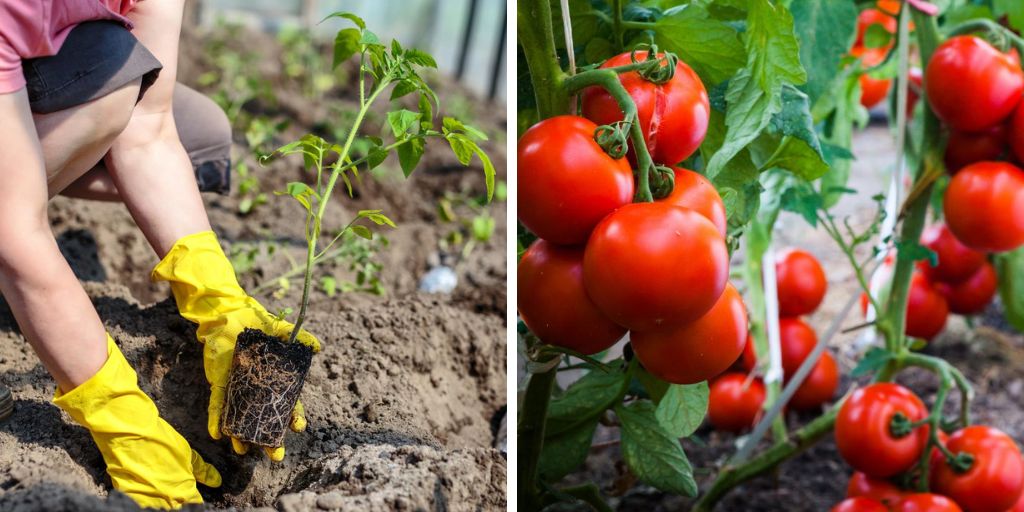All gardeners like seeing their hard work pay off when they finally see their fruits and vegetables grow into something beautiful.
Every gardener’s greatest gift will be juicy fruits, healthy plants, and delectable crops However, this isn’t always the case. The growth of your plants might be adversely affected by a variety of causes, leaving you perplexed as to what went wrong.
Good news! Every gardener should know about a few simple hacks and techniques for enhancing the quality of their plants’ growth. Tomatoes are in the same boat.
Knowing the following 9 tomato hacks for optimum outcomes can tremendously help you to get the best tomatoes that anyone has ever seen.
It’s common for your crop to be depleted of vitamins, minerals, or other essential nutrients after a failure or failure of some sort.
The following 9 tips you’ll learn before transplanting your tomato plants should prevent this from happening to your plants:
1. Epsom Salt
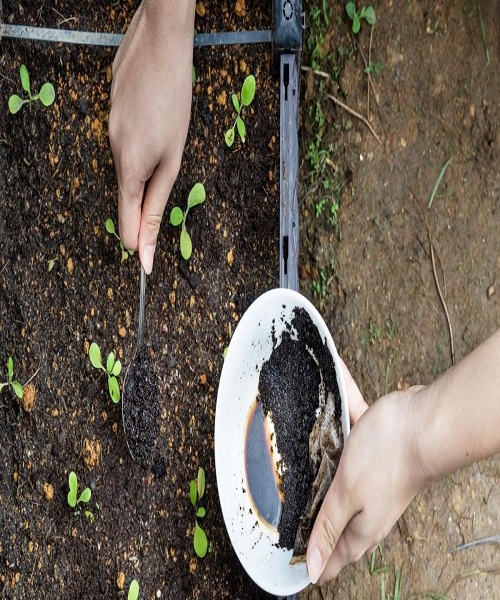
Epsom salt is well-known for its many health benefits, but you may not have known that it may have a favorable effect on your tomatoes as well.
Why Epsom Salt?
Tomatoes benefit greatly from the magnesium in Epsom salt, which is the primary reason for its use. Next time you’re stumped by why your tomatoes aren’t producing, you may want to consider magnesium deficiency.
What to do?
Get some Epsom salt and sprinkle it in the hole where the seedling will be placed before planting. In order to protect the roots of your plants from the salt, you need cover the salt with a layer of dirt. You’ll be amazed at the outcomes and obtain the tastiest and juiciest tomatoes possible.
2. Aspirin

Most likely, you had never idea that aspirin may be useful in the garden. Then then, you’d been wrong! Taking aspirin can be as as good for your tomatoes as it is for your health…
Why Aspirin?
Your tomatoes will thrive once they come into contact with aspirin, which contains salicylic acid. It will be an excellent tool for combating diseases like blight while also enhancing crop yields.
What to do?
Make a homemade spray solution and spray your tomatoes as needed. Add two or three aspirin tablets to the hole. When you do this, your tomatoes will be able to fight against the disease.
3. Baking Soda
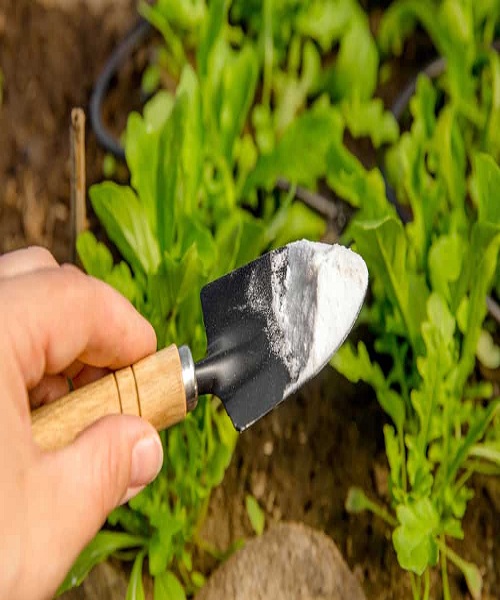
Baking soda appears to be the answer to all of life’s problems, be they in the kitchen or out in the garden. It will also benefit your tomato plants.
Why Baking Soda?
Baking soda is perfect for those who prefer their tomatoes with a sweeter flavor. It’s especially important for those who cultivate their tomatoes in pots.
What to do?
Just sprinkle a little baking soda over the tomato plants’ bases, that’s all there is to it! Soda will reduce soil acidity, resulting in sweeter tasting tomatoes once it has been absorbed into the soil.
4. Used Coffee Grounds
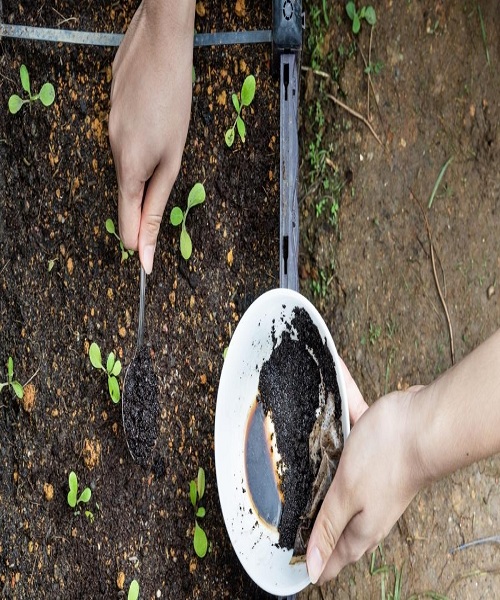
Coffee grinds may be better placed in the soil rather than in the trash, according to this study. Use used coffee grounds before planting your tomatoes to see if there is any effect on their color and flavor.
Why Used Coffee Grounds?
As a mulch, leftover coffee grounds can be a great addition to your garden. Coffee grounds are a fantastic source of fertilizer and improve the soil’s structure. The coffee grinds used to fertilize your tomatoes will result in juicy and nutrient-rich fruits.
What to do?
Get your hands on some discarded coffee grounds and put them in your garden soil before you plant your tomato seedlings.
5. Kelp Meal
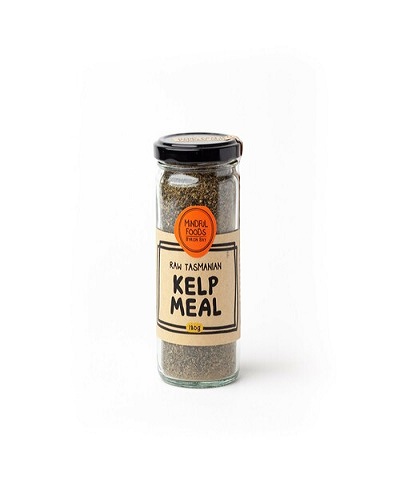
When it comes to fertilizing your plants, kelp meal is an excellent source of trace elements and micronutrients. Your tomatoes are the same.
Why Kelp Meal?
To begin with, it provides all of the essential elements your tomatoes require. Another benefit is that excessive fertilizer shock will be avoided if kelp is added to the tomato mix.
What to do?
Using Kelp Meal will help your tomatoes get off to a fast start, so try it out! The only thing you need to do before planting your tomatoes is sprinkle a cup-full of kelp meal to the hole.
6. Fish Heads
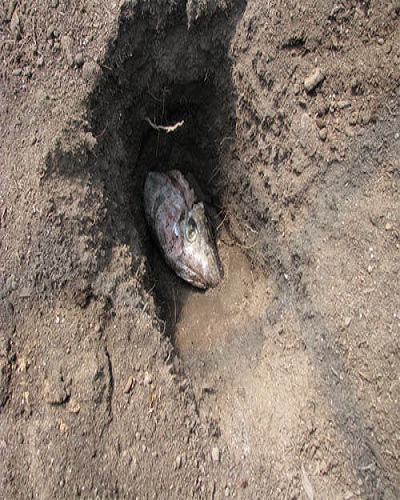
The high concentration of beneficial elements in fish makes it an excellent source of protein for human consumption. We rarely eat fish heads, so why throw them away when we can utilize them in the garden?
Why Fish Heads?
Tomato plants, in particular, benefit from fish heads, which are well-known for their ability to enhance plant growth. A large part of this is because fish heads contain high concentrations of critical trace minerals, which decompose and release potassium, calcium, nitrogen, and phosphorus into the environment.
What to do?
It’s best to avoid digging a hole that’s more than a foot deep, as you could be inadvertently attracting unwanted visitors. Fish heads can be used in a variety of ways in your garden. As an alternative, you can use pulverized fish scraps mixed with two cups of water and one cup of milk to create a solution that can be used in the deep hole. It doesn’t matter which method you use; your tomatoes will benefit greatly from it.
7. Eggshells
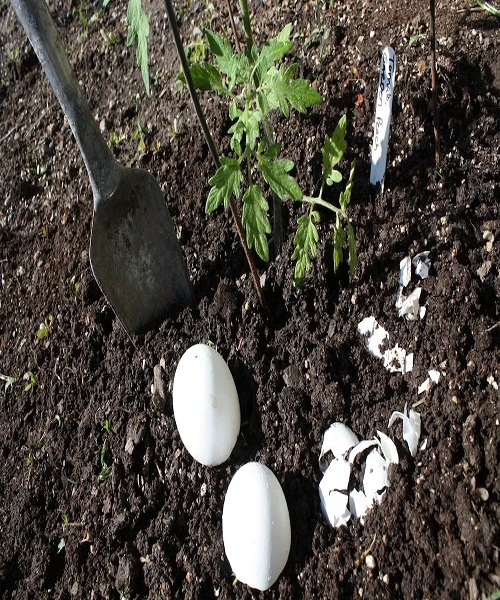
If you’re a gardener, it’s time to put those eggshells away since they’ll come in handy for your plants.
Why Eggshells?
If you’ve done your research on the benefits of calcium, you’ll know that it’s a critical nutrient in the process of cell growth.
What to do?
Prevent rotten tomatoes by placing eggshell in the hole before planting your tomatoes. This will also encourage the plants to bloom.
8. Bone Meal
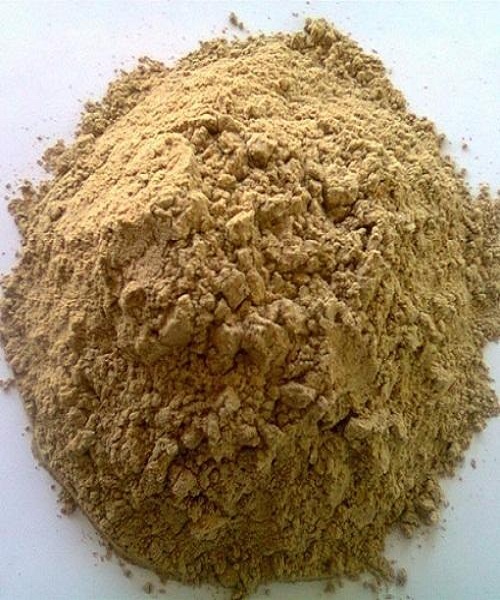
Bone meal or Bone dung is a mixture of pulverized animal bones and slaughterhouse waste products that is used as a natural fertilizer for crops. Plants can benefit from it as an organic fertilizer, and animals can benefit from it as a nutritional supplement.
Why Bone Meal?
Bone meal is a good source of protein and phosphorus, the nutrients that will help your tomatoes develop and thrive.
What to do?
Bone meal can be added to the planting hole before you plant your tomatoes. Bone meal will provide your tomatoes with the phosphorus they require, resulting in the healthiest and juiciest tomato harvest possible.
9. Cotton
As a result of its relaxing effects, cotton is undoubtedly the best material for human use. For plants, it is the same. Cotton can help tomatoes grow better, which may seem absurd at first.
Why Cotton?
Tomatoes benefit from cotton’s growth-promoting properties, and it appears that utilizing cotton to your advantage in the garden is more than just a gardening hack.
What to do?
Use a truckload of gin waste to transport it to your yard. Cotton acts as a natural mulch while also holding the soil in place. There’s always the option of experimenting with creative uses for cotton mill waste and reporting back on your findings.

